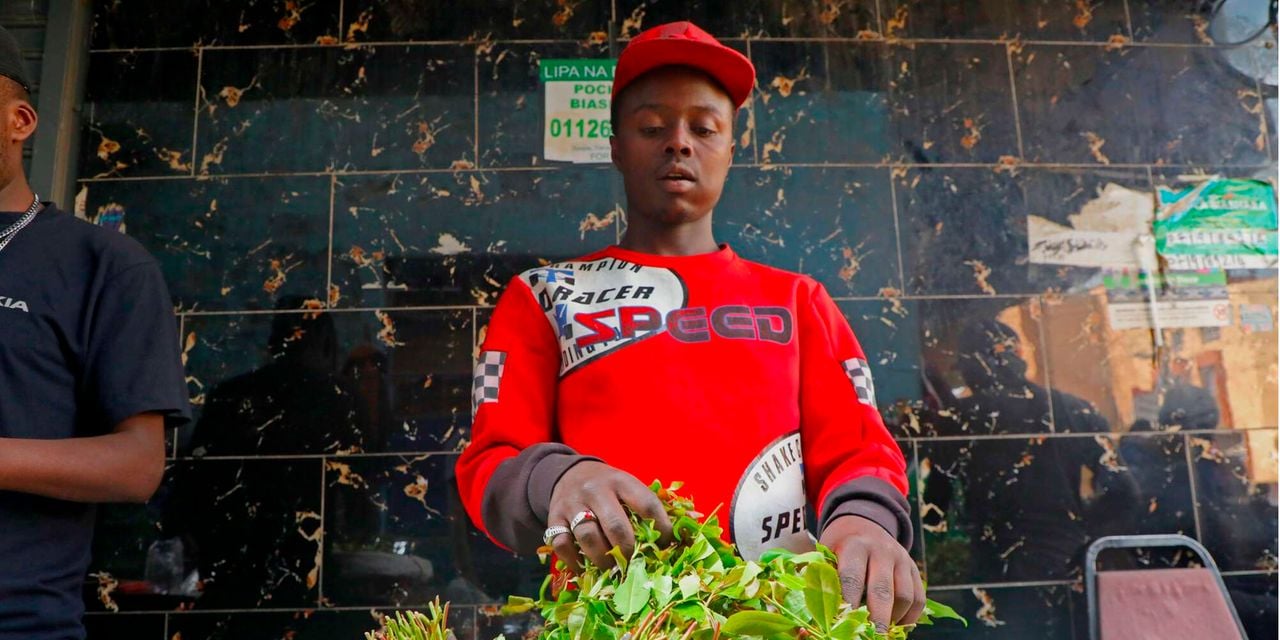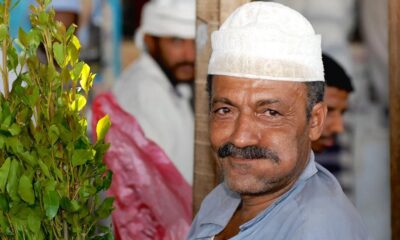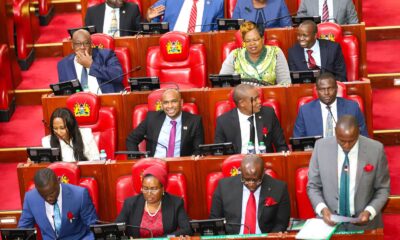News
New Bill in Parliament Seeks to Ban Muguka
Under the proposed changes, muguka would lose its status as a legally recognized crop, stripping away safeguards that currently prevent counties from unilaterally restricting or banning its trade.

A controversial legislative proposal currently before Kenya’s National Assembly could fundamentally alter the legal status of muguka, potentially opening the door for counties to impose bans on the stimulant crop that supports thousands of farmers across the country.
The Bill, sponsored by Kilifi North Member of Parliament Owen Baya, seeks to amend the Crops Act by separating muguka from miraa (khat) and removing it from the list of scheduled crops—a designation that currently provides legal protection and government support.
Under the proposed changes, muguka would lose its status as a legally recognized crop, stripping away safeguards that currently prevent counties from unilaterally restricting or banning its trade.
The amendment specifically aims to “differentiate muguka from miraa and therefore expressly exclude muguka from being a scheduled crop,” according to the Bill’s text.
The timing of this legislative push comes amid escalating tensions between coastal counties and muguka stakeholders.
Mombasa, Kilifi, and Taita Taveta counties have already moved to ban the sale and distribution of the crop, citing health concerns including dependency, insomnia, elevated blood pressure, and other adverse effects.
For Embu County, where muguka cultivation is concentrated, the implications could be devastating.
The region hosts over 65,000 farmers who depend on the crop, which anchors an economy worth approximately 22 billion shillings.
The potential delisting threatens not only farmer livelihoods but also significant revenue streams—Mombasa County alone collects an estimated one million shillings daily in levies from muguka trade.
The economic stakes extend beyond individual farmers to entire market chains.
In coastal regions, which represent the primary consumer markets, muguka retails between 300 and 600 shillings per kilogram, with prices reaching 1,000 shillings during dry seasons when supply tightens.
Currently, scheduled crops under the 2013 Crops Act benefit from mandatory quality certification, government subsidies, extension services, research support, and national market structures.
Removing muguka from this framework would eliminate these protections and support mechanisms.
The legislative proposal adds a new dimension to an ongoing national debate about muguka regulation.
Last year, President William Ruto criticized attempts by coastal governors to ban the crops, emphasizing their legal recognition under Kenyan law.
However, if the current Bill passes, this legal foundation would be removed, potentially validating county-level restrictions.
The Bill’s progression through Parliament will be closely watched by multiple stakeholders—from Embu farmers whose economic survival depends on continued cultivation, to coastal communities concerned about public health impacts, to county governments seeking greater regulatory control over substances they view as problematic.
As the National Assembly considers this legislation, the outcome will determine whether muguka maintains its protected status or becomes vulnerable to a patchwork of county-level regulations that could fragment or eliminate key markets for this economically significant but controversial crop.
The debate reflects broader tensions in Kenya’s devolved governance system, where national economic interests sometimes clash with county-level social and health concerns, leaving Parliament to balance competing priorities that affect thousands of livelihoods and billions of shillings in economic activity.
Kenya Insights allows guest blogging, if you want to be published on Kenya’s most authoritative and accurate blog, have an expose, news TIPS, story angles, human interest stories, drop us an email on [email protected] or via Telegram
-

 Grapevine6 days ago
Grapevine6 days agoAlleged Male Lover Claims His Life Is in Danger, Leaks Screenshots and Private Videos Linking SportPesa CEO Ronald Karauri
-

 Lifestyle1 week ago
Lifestyle1 week agoThe General’s Fall: From Barracks To Bankruptcy As Illness Ravages Karangi’s Memory And Empire
-

 Grapevine2 days ago
Grapevine2 days agoRussian Man’s Secret Sex Recordings Ignite Fury as Questions Mount Over Consent and Easy Pick-Ups in Nairobi
-

 Investigations2 weeks ago
Investigations2 weeks agoEpstein Files: Sultan bin Sulayem Bragged on His Closeness to President Uhuru Then His Firm DP World Controversially Won Port Construction in Kenya, Tanzania
-

 News2 weeks ago
News2 weeks agoAUDIT EXPOSES INEQUALITY IN STAREHE SCHOOLS: PARENTS BLED DRY AS FEES HIT Sh300,000 AGAINST Sh67,244 CAP
-

 Business2 weeks ago
Business2 weeks agoKRA Can Now Tax Unexplained Bank Deposits
-

 Investigations1 week ago
Investigations1 week agoEpstein’s Girlfriend Ghislaine Maxwell Frequently Visited Kenya As Files Reveal Local Secret Links With The Underage Sex Trafficking Ring
-

 News1 week ago
News1 week agoState Agency Exposes Five Top Names Linked To Poor Building Approvals In Nairobi, Recommends Dismissal After City Hall Probe



























